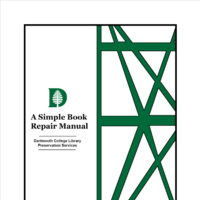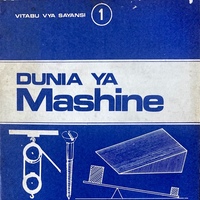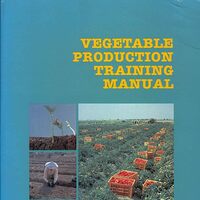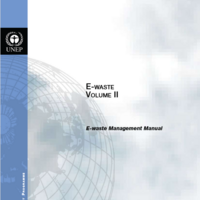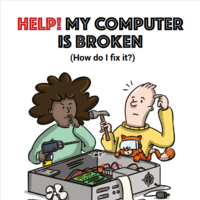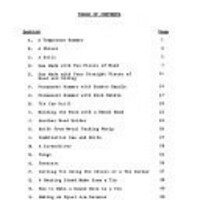Search
Books+
Searching 1,73 books
Search related to the career Refrigeration Technician
Duties of a Refrigeration Technician:
1. Installation and Maintenance: Refrigeration technicians are responsible for installing, repairing, and maintaining refrigeration systems and equipment. This includes ensuring proper installation of components, such as compressors, condensers, evaporators, and piping systems.
2. Troubleshooting and Repair: Refrigeration technicians diagnose and troubleshoot issues with refrigeration systems to identify the cause of malfunctions. They perform repairs or replacements of faulty components, such as motors, valves, and thermostats, to restore proper functionality.
3. Refrigerant Handling: Refrigeration technicians handle refrigerants, including their proper storage, transportation, and disposal. They ensure compliance with environmental regulations and safety protocols to prevent harm to themselves and the environment.
4. System Testing and Inspection: Refrigeration technicians conduct tests and inspections to evaluate the performance and efficiency of refrigeration systems. They use specialized tools and equipment to measure temperature, pressure, and electrical readings to ensure optimal system operation.
5. Preventive Maintenance: Refrigeration technicians perform routine maintenance tasks, such as cleaning coils, lubricating moving parts, and checking system controls. This helps prevent future breakdowns and extends the lifespan of refrigeration systems.
6. Documentation and Reporting: Refrigeration technicians maintain accurate records of maintenance and repair activities. They prepare reports detailing findings, recommendations, and any necessary follow-up actions for supervisors or clients.
7. Customer Service: Refrigeration technicians often interact with clients or customers to understand their concerns and provide solutions. They may offer advice on energy-efficient practices, system usage, and maintenance to ensure customer satisfaction.
8. Safety Compliance: Refrigeration technicians adhere to safety protocols and regulations to minimize risks associated with working on refrigeration systems. They use personal protective equipment (PPE) and follow safety guidelines to prevent accidents and injuries.
9. Upgrading and Retrofitting: Refrigeration technicians stay updated with advancements in refrigeration technology and may recommend system upgrades or retrofits to improve energy efficiency and reduce environmental impact.
10. Continuous Learning: Refrigeration technicians engage in ongoing training and professional development to enhance their skills and knowledge of new refrigeration systems, technologies, and industry best practices.
1. Installation and Maintenance: Refrigeration technicians are responsible for installing, repairing, and maintaining refrigeration systems and equipment. This includes ensuring proper installation of components, such as compressors, condensers, evaporators, and piping systems.
2. Troubleshooting and Repair: Refrigeration technicians diagnose and troubleshoot issues with refrigeration systems to identify the cause of malfunctions. They perform repairs or replacements of faulty components, such as motors, valves, and thermostats, to restore proper functionality.
3. Refrigerant Handling: Refrigeration technicians handle refrigerants, including their proper storage, transportation, and disposal. They ensure compliance with environmental regulations and safety protocols to prevent harm to themselves and the environment.
4. System Testing and Inspection: Refrigeration technicians conduct tests and inspections to evaluate the performance and efficiency of refrigeration systems. They use specialized tools and equipment to measure temperature, pressure, and electrical readings to ensure optimal system operation.
5. Preventive Maintenance: Refrigeration technicians perform routine maintenance tasks, such as cleaning coils, lubricating moving parts, and checking system controls. This helps prevent future breakdowns and extends the lifespan of refrigeration systems.
6. Documentation and Reporting: Refrigeration technicians maintain accurate records of maintenance and repair activities. They prepare reports detailing findings, recommendations, and any necessary follow-up actions for supervisors or clients.
7. Customer Service: Refrigeration technicians often interact with clients or customers to understand their concerns and provide solutions. They may offer advice on energy-efficient practices, system usage, and maintenance to ensure customer satisfaction.
8. Safety Compliance: Refrigeration technicians adhere to safety protocols and regulations to minimize risks associated with working on refrigeration systems. They use personal protective equipment (PPE) and follow safety guidelines to prevent accidents and injuries.
9. Upgrading and Retrofitting: Refrigeration technicians stay updated with advancements in refrigeration technology and may recommend system upgrades or retrofits to improve energy efficiency and reduce environmental impact.
10. Continuous Learning: Refrigeration technicians engage in ongoing training and professional development to enhance their skills and knowledge of new refrigeration systems, technologies, and industry best practices.
Source: Various AI tools
Searched in English.

